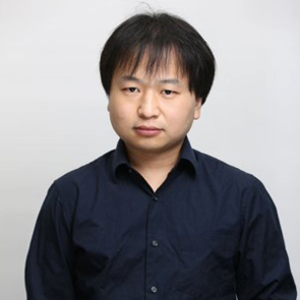Events
Oct 13, 2025
Seminar (2025-10-13)
School of Biomedical Sciences cordially invites you to join the following seminar:
Speaker: Dr. Chen Jin, Assistant Professor, Faculty of Life and Health Sciences, Shenzhen University of Advanced Technology
Talk Title: Ovarian aging as a target to improve women’s health
Date: 13 October 2025 (Monday)
Time: 4:00 pm – 5:00 pm
Venue: Lecture Theatre 2, G/F, William M.W. Mong Block, 21 Sassoon Road
Host: Professor Rio Sugimura
Biography

Dr. Chen Jin is an Assistant Professor at the Faculty of Life and Health Sciences, Shenzhen University of Advanced Technology (SUAT). He earned his Ph.D. from the Beijing Institute of Genomics, Chinese Academy of Sciences. Following postdoctoral and associate research scientist training in Yousin Suh’s laboratory at Columbia University Irving Medical Center, he established his Lab at SUAT in 2025. Dr. Jin integrates single-cell and spatial multi-omics with genetics to decipher female reproductive aging and its systemic impacts. His recent first-author study in Nature Aging generated a single-nucleus multi-omics atlas of human ovarian aging, uncovering coordinated transcriptomic and epigenetic changes and prioritizing non-coding variants associated with age at menopause.
Abstract
The ovary is the first organ to undergo early-onset aging in the human body, with profound consequences for both fertility and overall health in women. However, the biological mechanisms driving ovarian aging remain poorly understood. To understand the molecular, cellular, and genetic basis of ovarian aging in humans, we performed integrative single-nucleus multi-omics analyses of young and reproductively aged human ovaries, uncovering coordinated changes in gene regulation across all ovarian cell types. We found that ovarian aging is marked by transcriptomic and chromatin accessibility signatures of the canonical Hallmarks of Aging. By integrating our multi-omics data with genome-wide association study (GWAS) variants linked to age at natural menopause, we demonstrate how functional genetic variants shape gene regulatory networks across ovarian cell types. Our work provides a comprehensive multimodal landscape of human ovarian aging and mechanistic insights into inherited variation influencing the timing of menopause. As a first translational step, a low-dose rapamycin trial is underway to evaluate whether targeting these pathways can delay ovarian aging and improve women’s health.
ALL ARE WELCOME.

